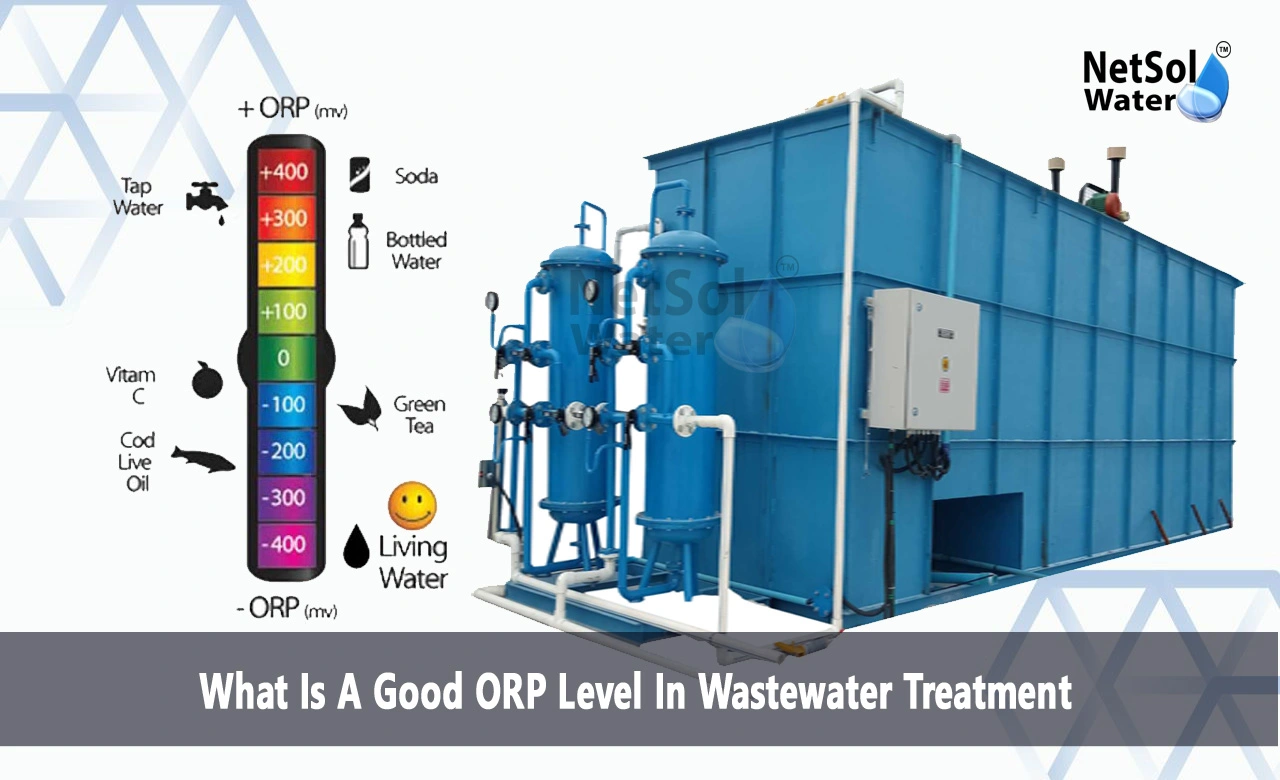What Is A Good ORP Level In Wastewater Treatment?
The success of wastewater treatment depends on maintaining proper Oxidation-Reduction Potential (ORP) levels. ORP serves as a key indicator that shows how well treatment processes remove contaminants from water. Water treatment plant operators use ORP measurements to ensure their systems work effectively. This measurement helps create clean water that meets environmental standards.
Understanding ORP levels makes the difference between effective and ineffective wastewater treatment. Each treatment stage needs specific ORP ranges to work properly. Plant operators must monitor these levels continuously to maintain treatment efficiency. The right ORP levels ensure proper breakdown of pollutants removal of harmful bacteria and overall water quality improvement.
We will discusses ideal ORP ranges for different wastewater treatment processes. You will learn how ORP affects treatment outcomes what factors influence ORP levels and how to maintain optimal ranges. The information helps plant operators technicians and environmental professionals make informed decisions about their treatment processes.
ORP Fundamentals in Wastewater Treatment
ORP measurement forms the foundation of effective wastewater treatment. This electrical measurement shows the water's ability to clean itself through oxidation or reduction reactions. Treatment plant operators use ORP to monitor and control various treatment processes.
Basic ORP Principles
ORP measures electrical potential in millivolts (mV). Positive readings show oxidizing conditions while negative readings indicate reducing conditions. The measurement helps operators understand:
- The strength of disinfection processes
- The efficiency of organic matter breakdown
- The effectiveness of nutrient removal
ORP Testing Methods
Treatment plants use continuous monitoring systems with ORP probes. These probes send real-time data to control systems. Operators check probe readings against portable meters for accuracy. Regular calibration ensures reliable measurements.
Factors Affecting ORP Readings
- Temperature changes impact ORP values
- pH levels influence oxidation reactions
- Dissolved oxygen affects measurement accuracy
- Probe condition affects reading reliability
Optimal ORP Ranges for Different Treatment Stages
Each wastewater treatment stage requires specific ORP levels. These ranges ensure proper biological chemical and physical processes occur. Treatment plant operators adjust conditions to maintain these ranges.
Primary Treatment ORP Ranges
Primary treatment works best with ORP levels between -50 to +50 mV. This range promotes:
- Initial settling of solids
- Removal of large particles
- Preparation for secondary treatment
Secondary Treatment ORP Requirements
- Aerobic processes need +50 to +250 mV
- Anoxic zones work best at -50 to +50 mV
- Anaerobic processes require -300 to -100 mV
Tertiary Treatment ORP Goals
- Disinfection needs +650 mV or higher
- Advanced oxidation requires +600 to +800 mV
- Nutrient removal varies based on specific processes
Maintaining and Adjusting ORP Levels
Treatment plant operators must maintain proper ORP levels throughout the treatment process. This requires regular monitoring and adjustment of various parameters. Understanding these control methods helps achieve consistent treatment results.
Control Methods
- Aeration adjustment changes dissolved oxygen levels
- Chemical addition influences oxidation potential
- Mixing intensity affects reaction rates
- Retention time impacts treatment effectiveness
Common Problems and Solutions
- Low ORP in aeration basins often indicates insufficient oxygen
- High ORP might show excessive chemical addition
- Fluctuating readings suggest probe maintenance needs
- Sudden changes signal process disruptions
Take Action for Better Wastewater Treatment
Proper ORP management leads to better wastewater treatment results. Contact wastewater treatment experts to evaluate your system's ORP levels. They can help optimize your treatment processes and ensure you meet environmental standards.
Schedule a consultation with wastewater treatment professionals today. They will assess your current ORP levels recommend improvements and help maintain optimal treatment conditions. Expert guidance ensures your wastewater treatment system operates at peak performance.
Contact Netsol Water at:
Phone: +91-965-060-8473, Email: enquiry@netsolwater.com



